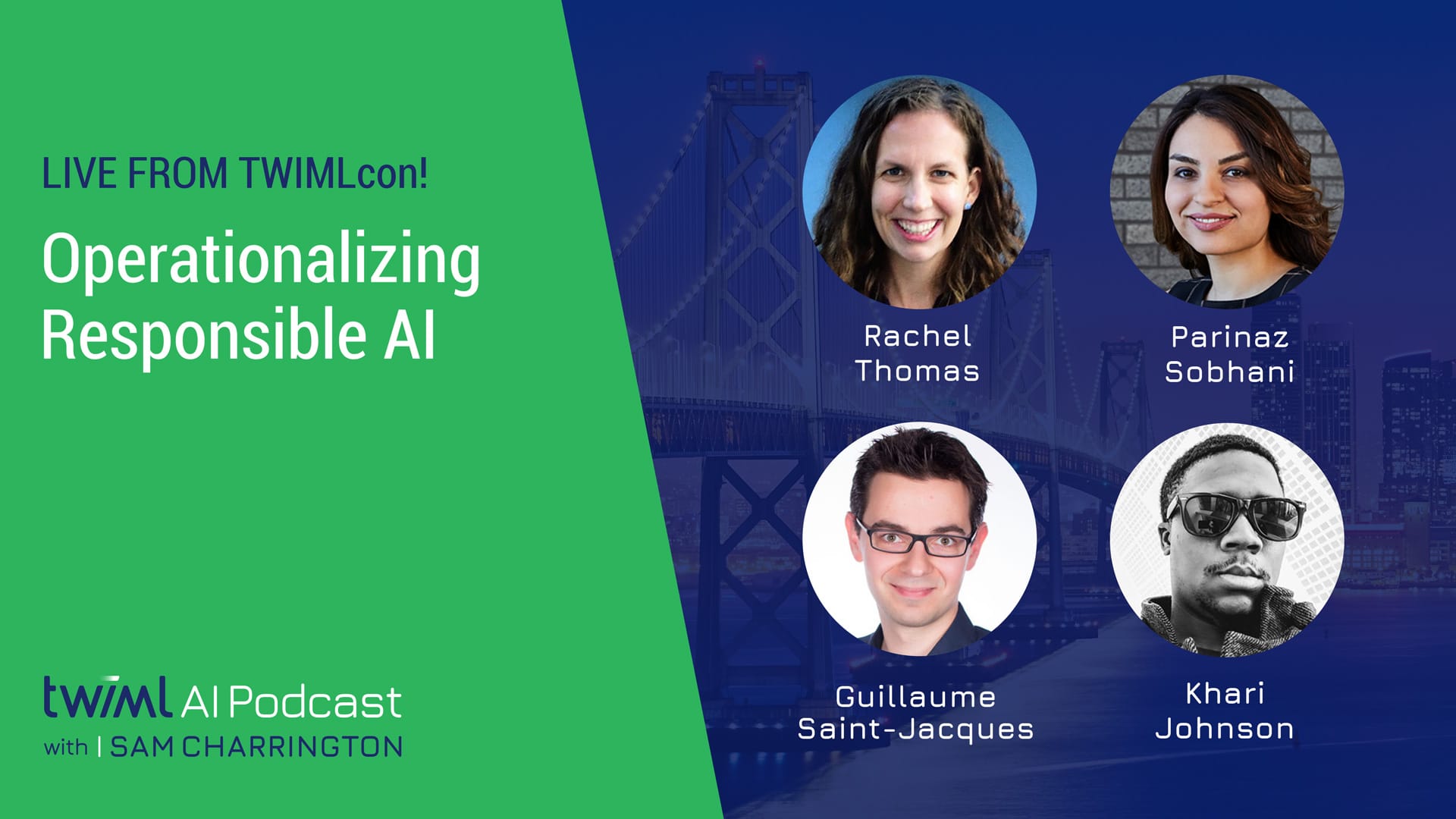An often forgotten about topic garnered high praise at TWIMLcon this month: operationalizing responsible and ethical AI.
This important topic was combined with an impressive panel of speakers, including: Rachel Thomas, Director, Center for Applied Data Ethics at the USF Data Institute, Guillaume Saint-Jacques, Head of Computational Science at LinkedIn, and Parinaz Sobahni, Director of Machine Learning at Georgian Partners, moderated by Khari Johnson, Senior AI Staff Writer at VentureBeat.
To start, the group covered the basics of operationalizing AI ethics in a range of orgs and detailed insight into an array of tools, approaches, and methods that have been found useful for teams to use. AI ethics covers a pretty broad range of problems to solve, but the biggest concerns, like focusing more on harm as opposed to algorithmic bias and encouraging specific responsibility for systems definitely tops the list. Additionally, it has become clear that no system will ever be 100% perfect, so educating the general public on the realities and misconceptions of probabilistic methods and putting into place preventative guardrails has become imperative for any operation. With a variety of organizations represented, the conversation around the long-term benefits of ethical decision-making is surfaced and the challenges of established versus startup companies is explored. This jam-packed episode also includes questions from the TWIMLcon audience, some common examples of power dynamics in AI ethics, and what we as a community can be doing to push the needle in the very powerful world of responsible AI.
